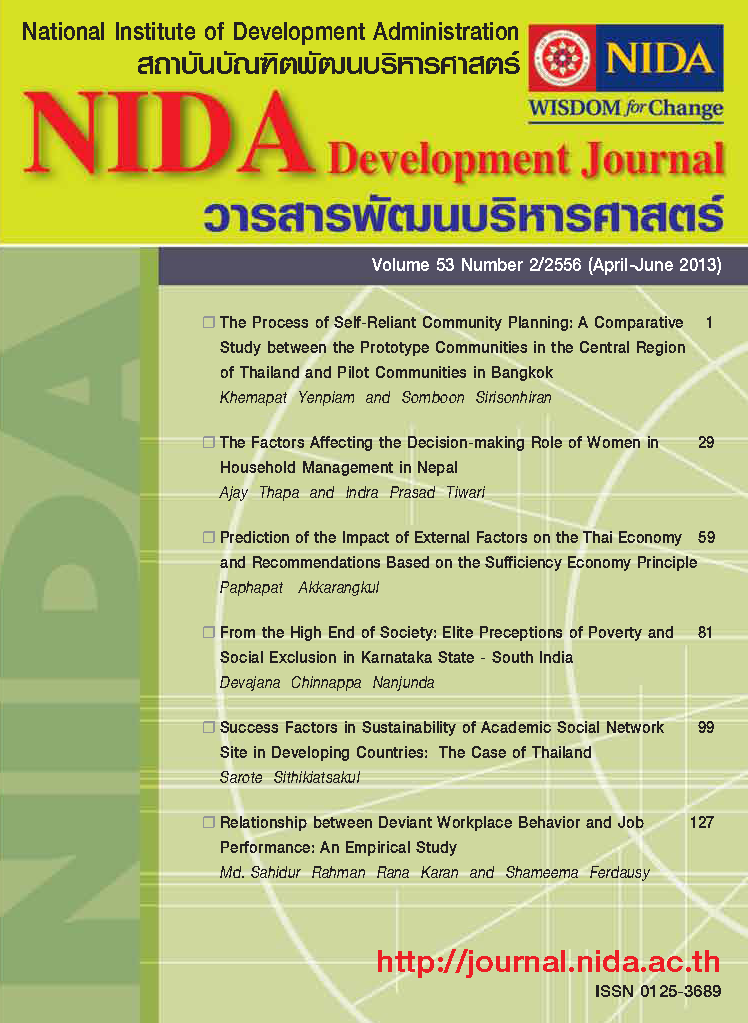The Factors Affecting the Decision-making Role of Women in Household Management in Nepal
Keywords:
Decision Making, Household Management, Role of WomenAbstract
Taking published data from the Nepal Demographic and Health Survey 2006, this study has examined the key demographic, social, and economic factors affecting the role of women in decision making in household management in Nepal. The study conf irmed that women’s age, religion, relationship to the head of the household, education, working status, and occupation, which were attributed to the women themselves, as well as occupation of husbands/partners and whether the husband had had another wife, which were attributed to the husbands/partners, were the major factors having a signif icant association with the role of women in decision making in household management. However, other likely factors, such as women’s age gap with husbands/partners, place of residence, social class, wealth status, type and level of earning, education of husbands/partners, husband’s living status, and sex of the household head were not found to have such a significant relationship. The f indings conf irmed contemporary thinking and rejected traditional thinking on this well-discussed social issue.Downloads
Published
24-03-2014
How to Cite
Thapa, A., & Tiwari, I. P. (2014). The Factors Affecting the Decision-making Role of Women in Household Management in Nepal. NIDA Development Journal, 53(2), 29–57. retrieved from https://so04.tci-thaijo.org/index.php/NDJ/article/view/17232





